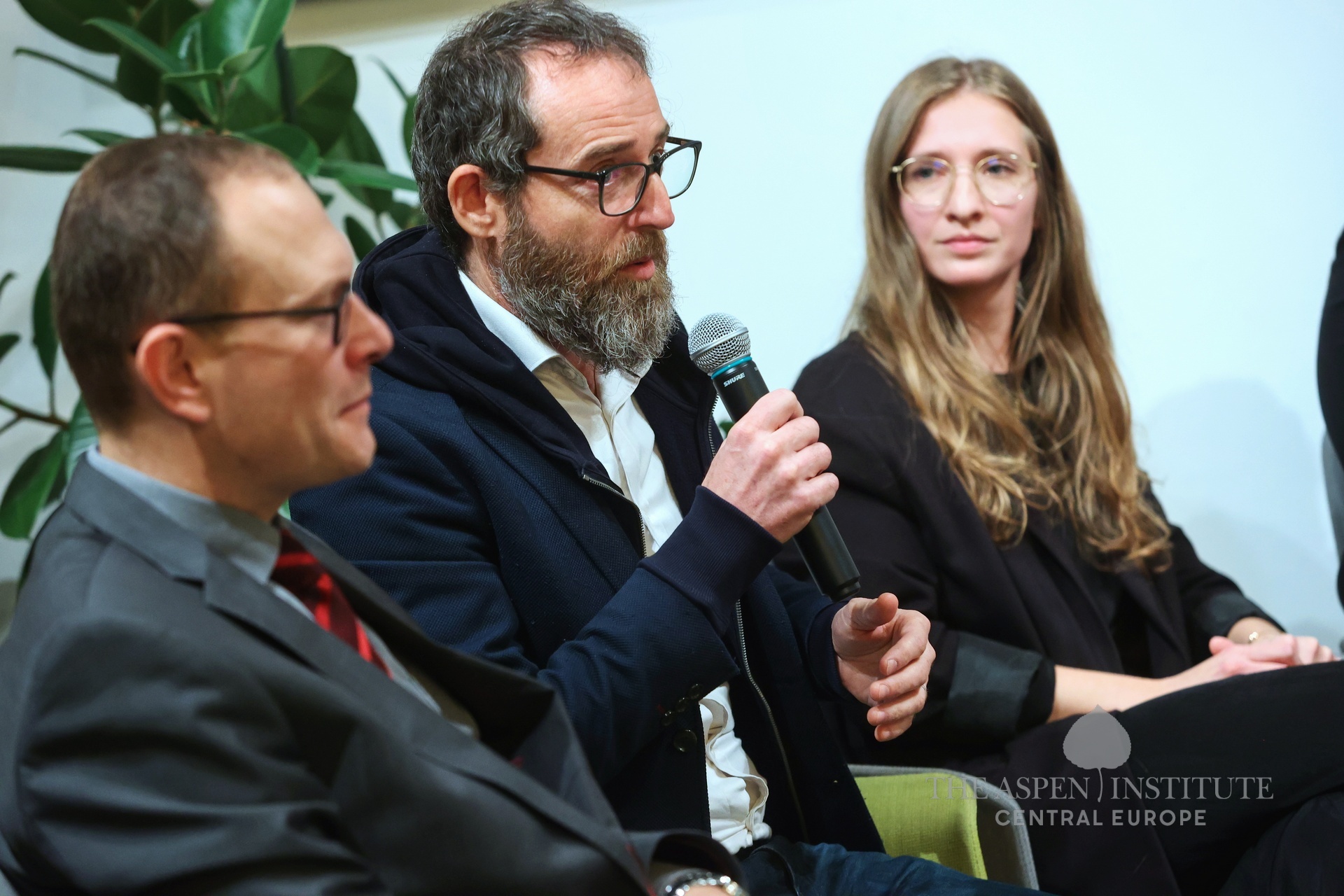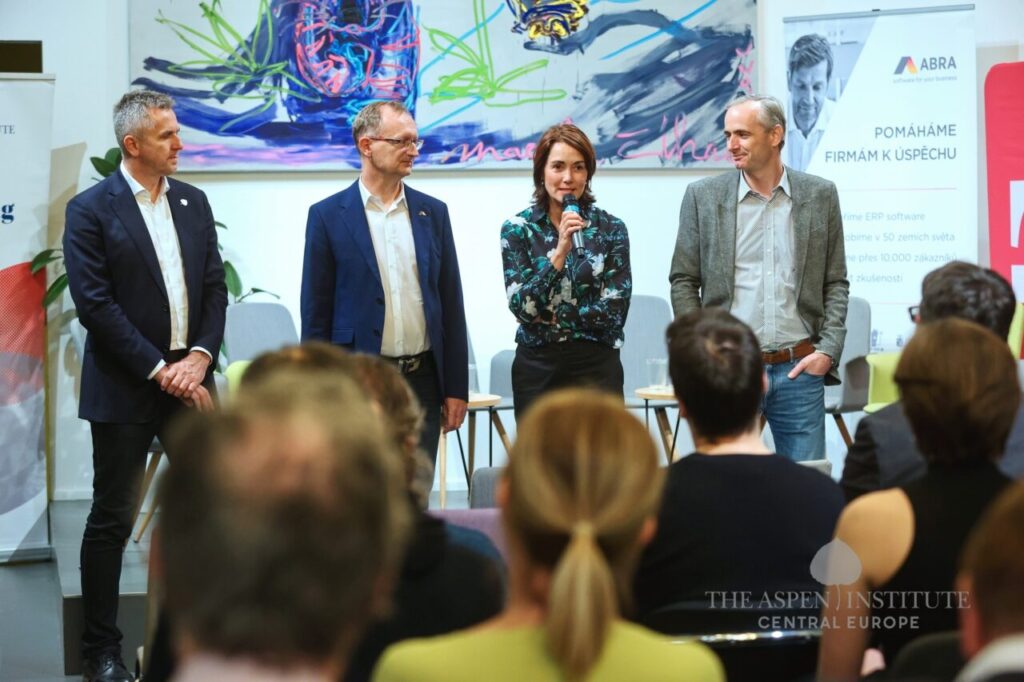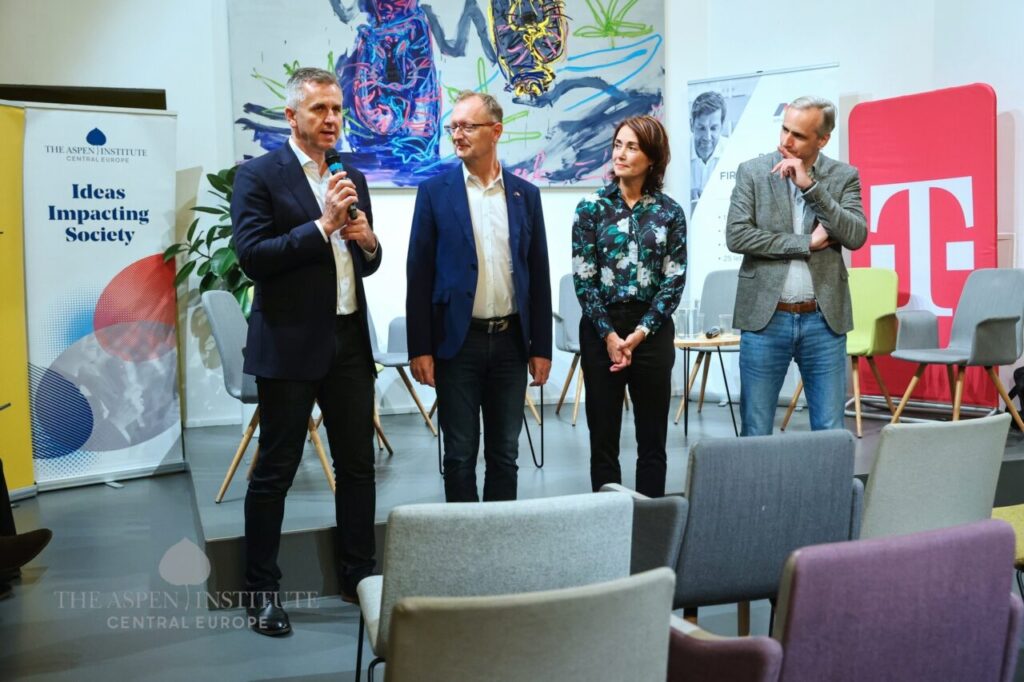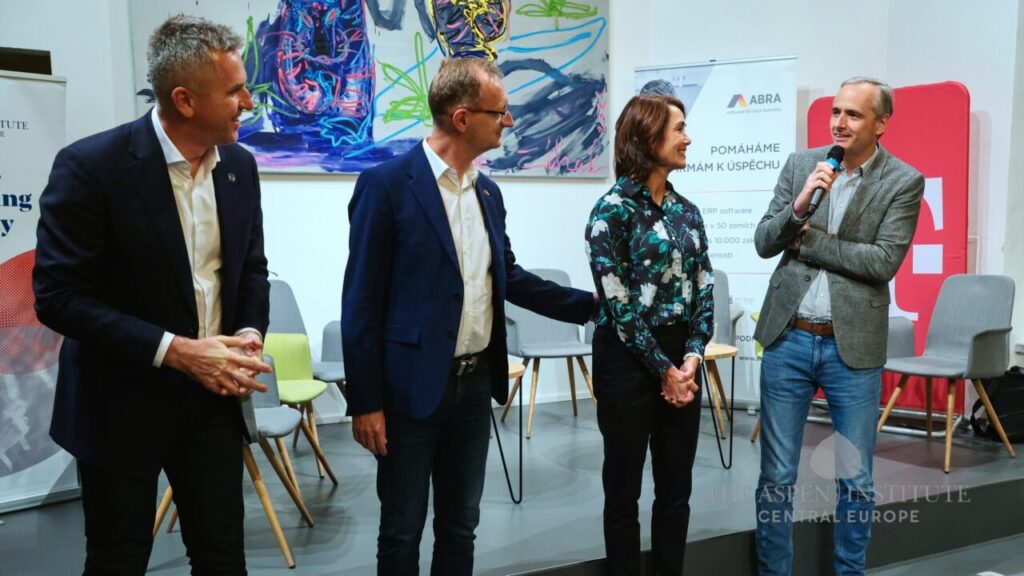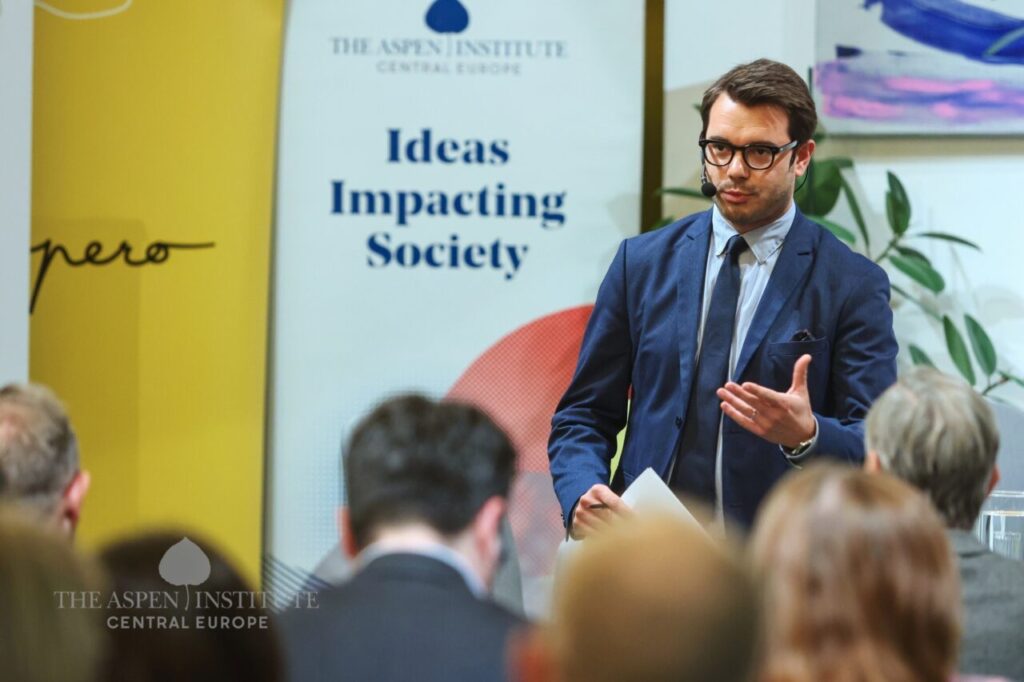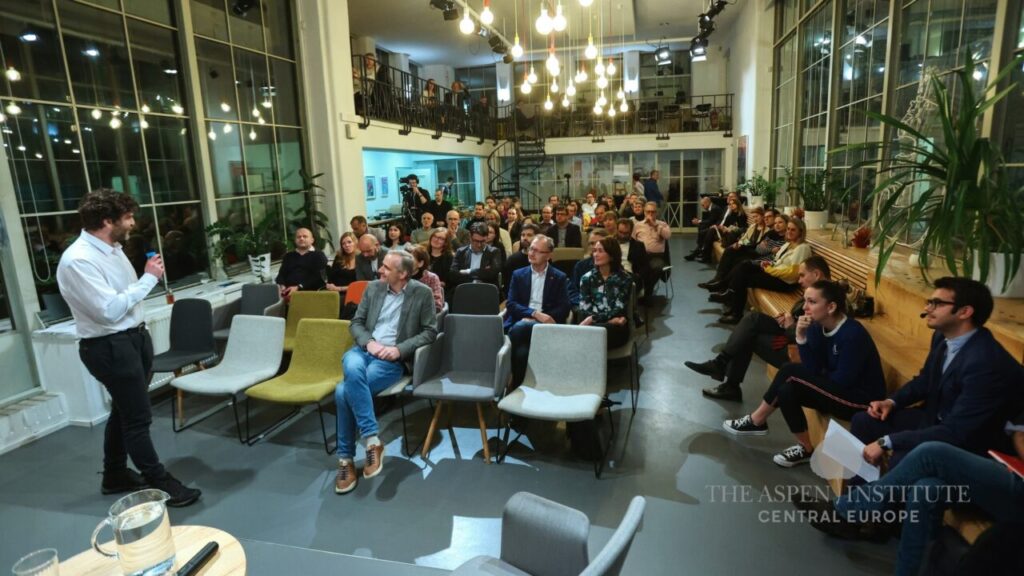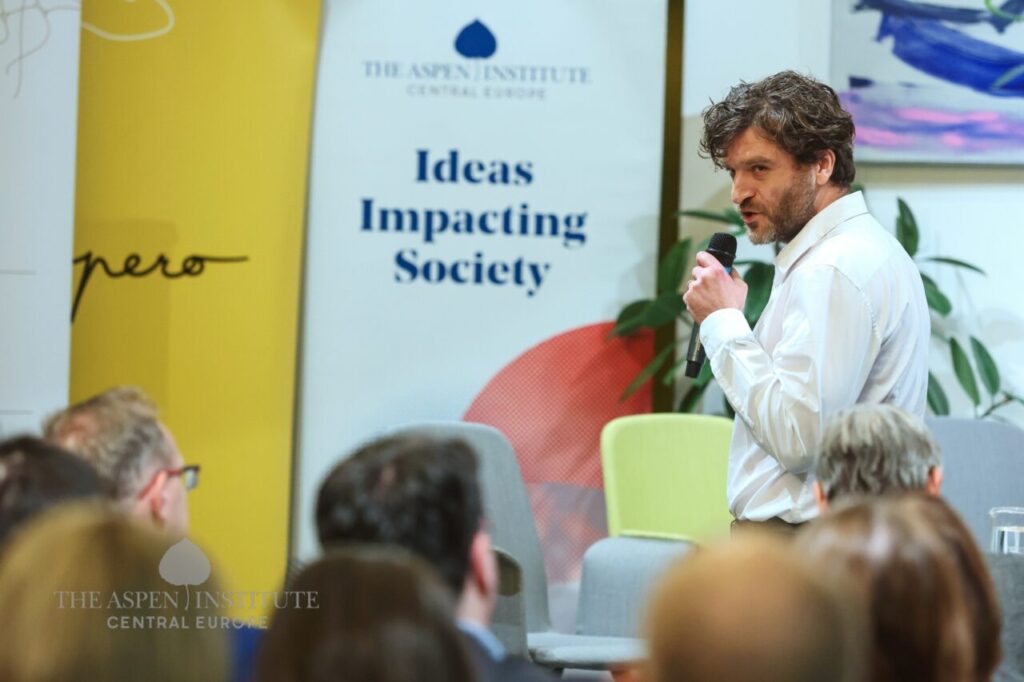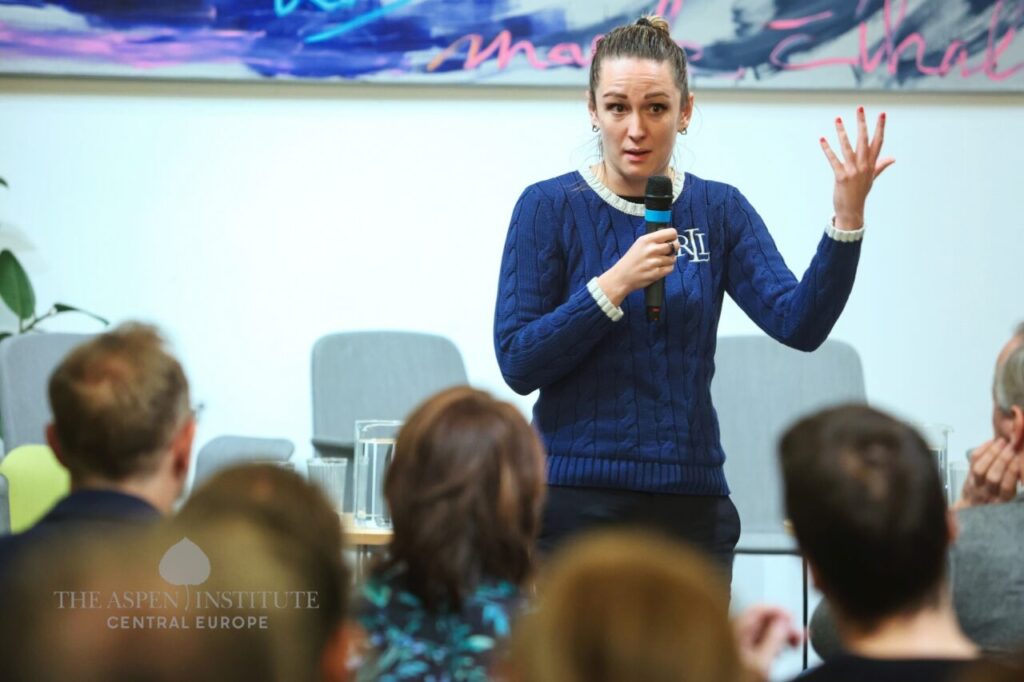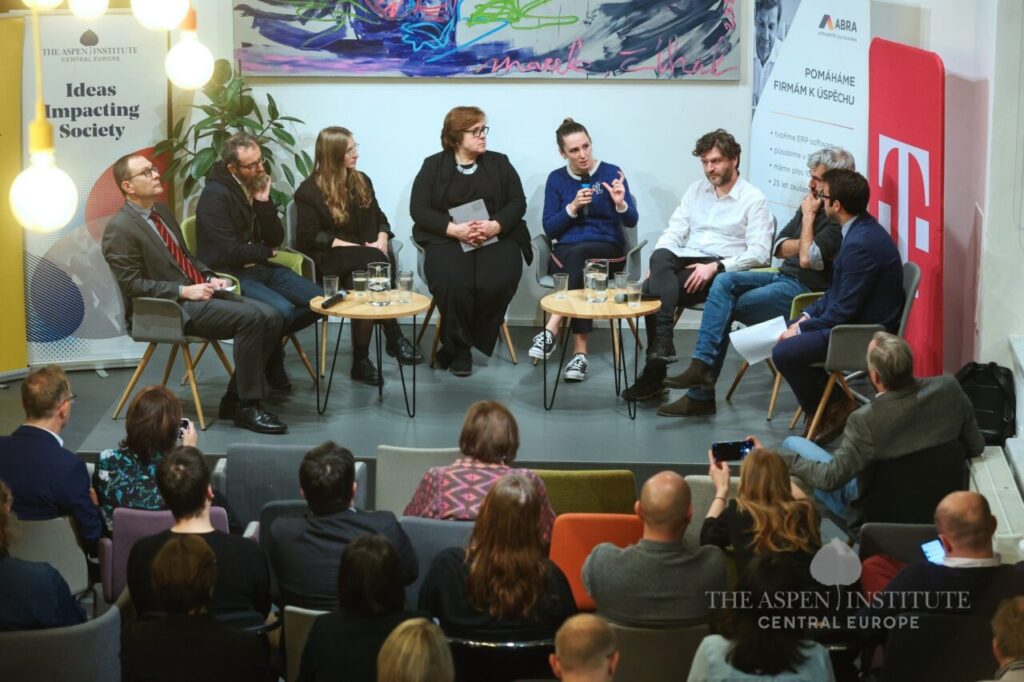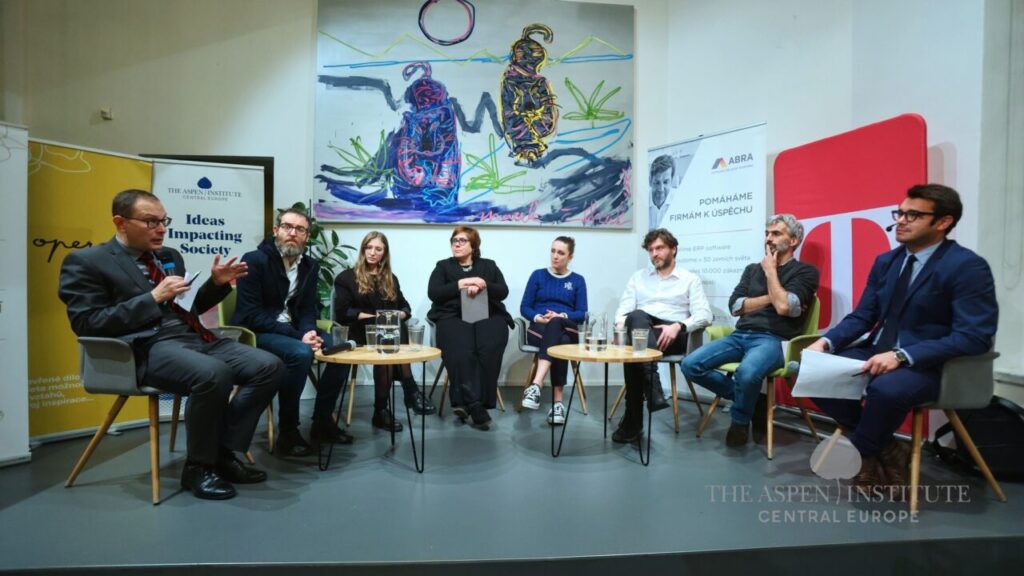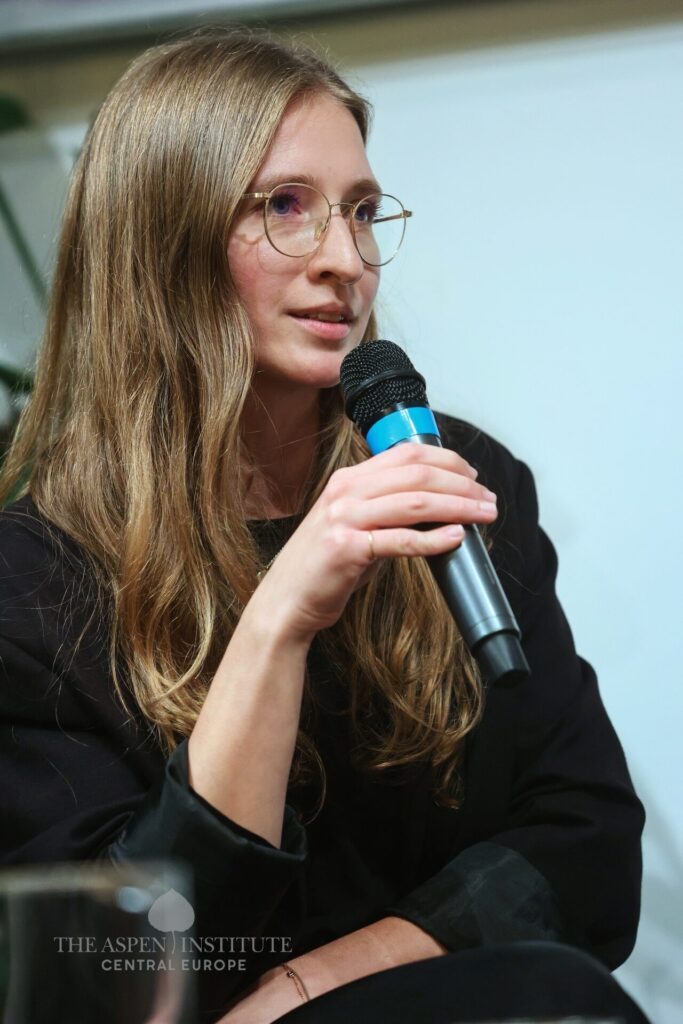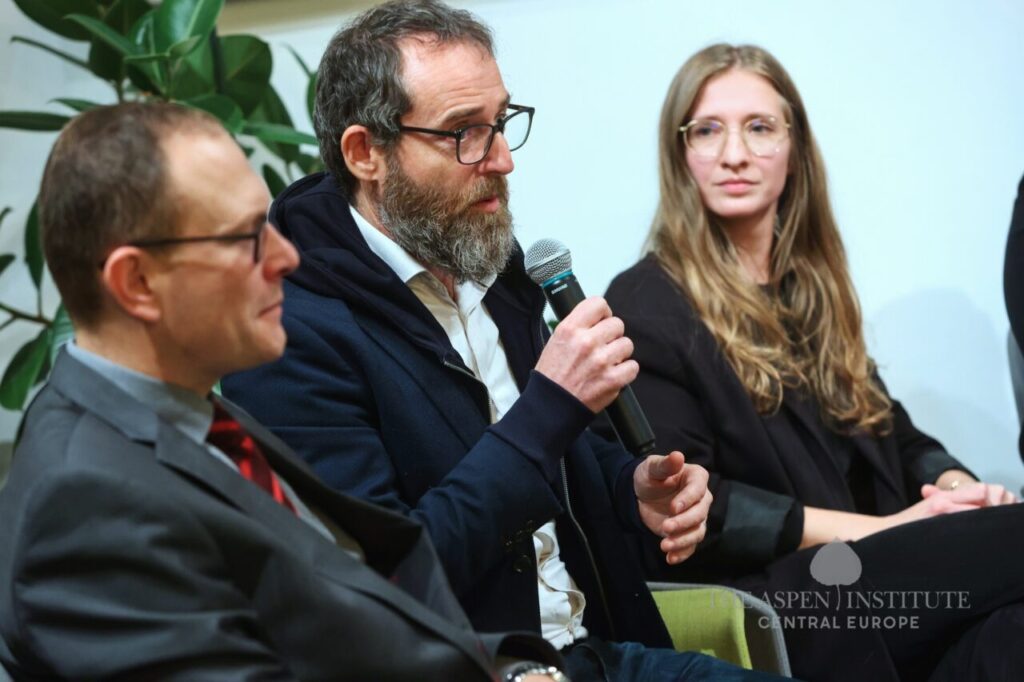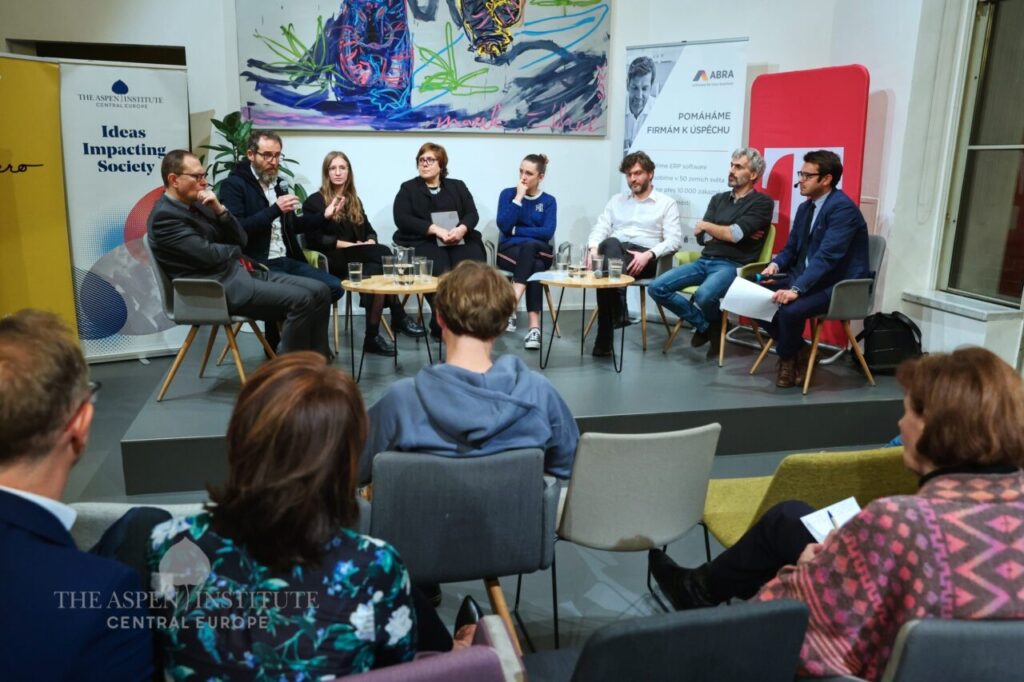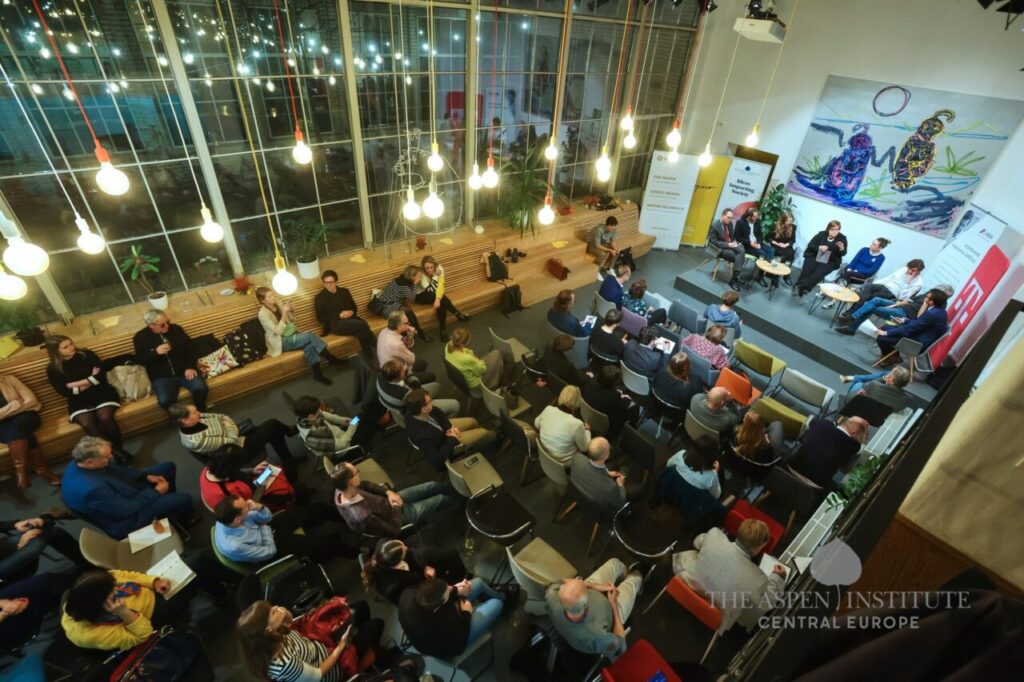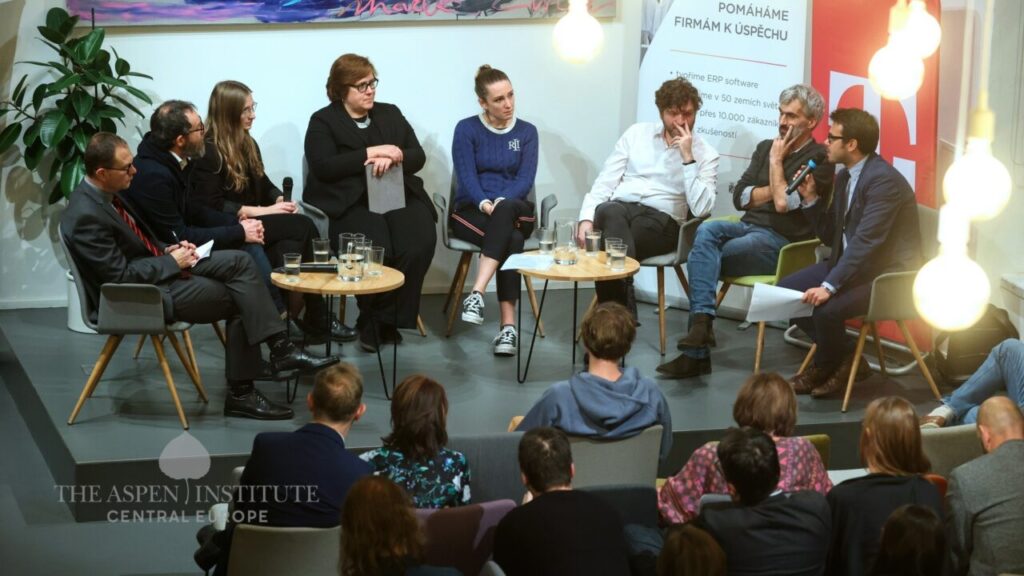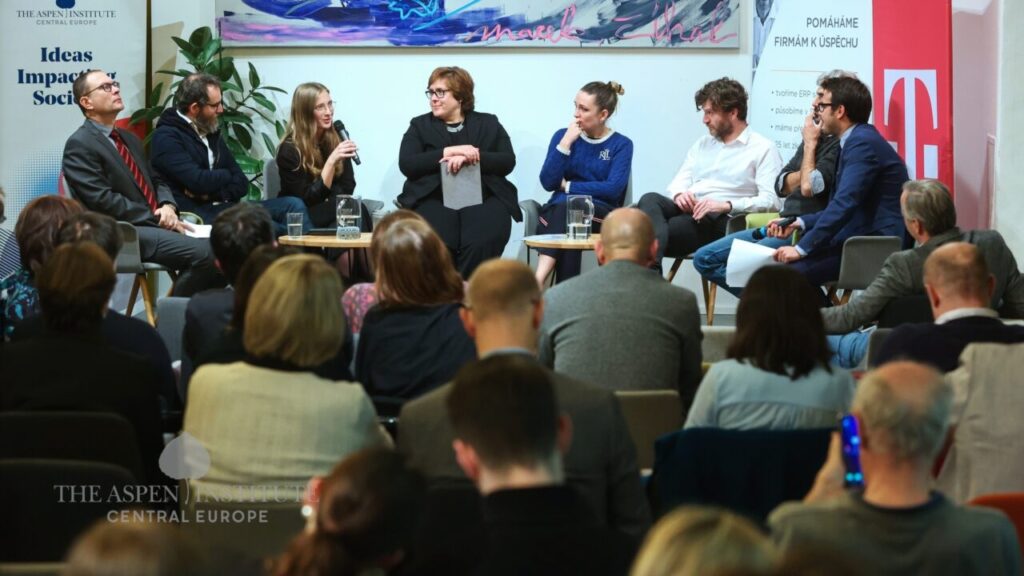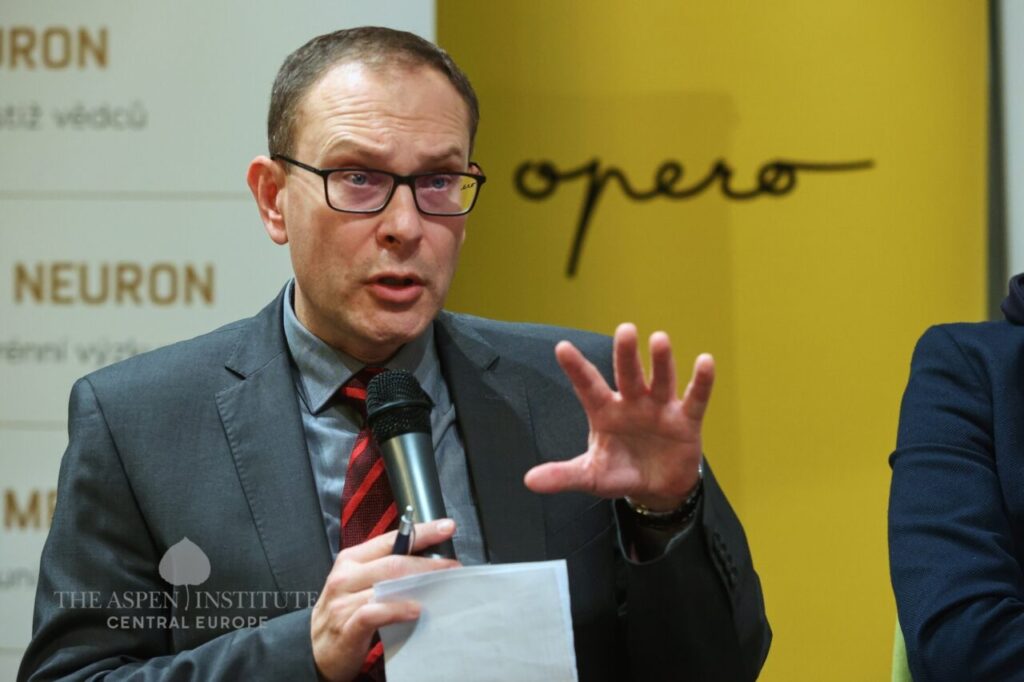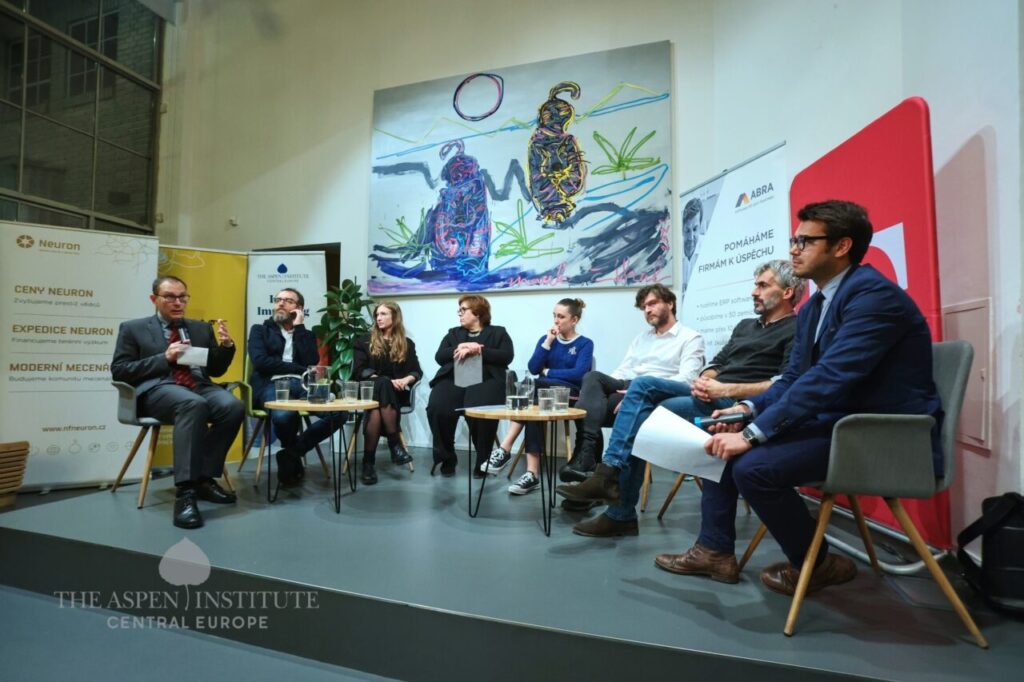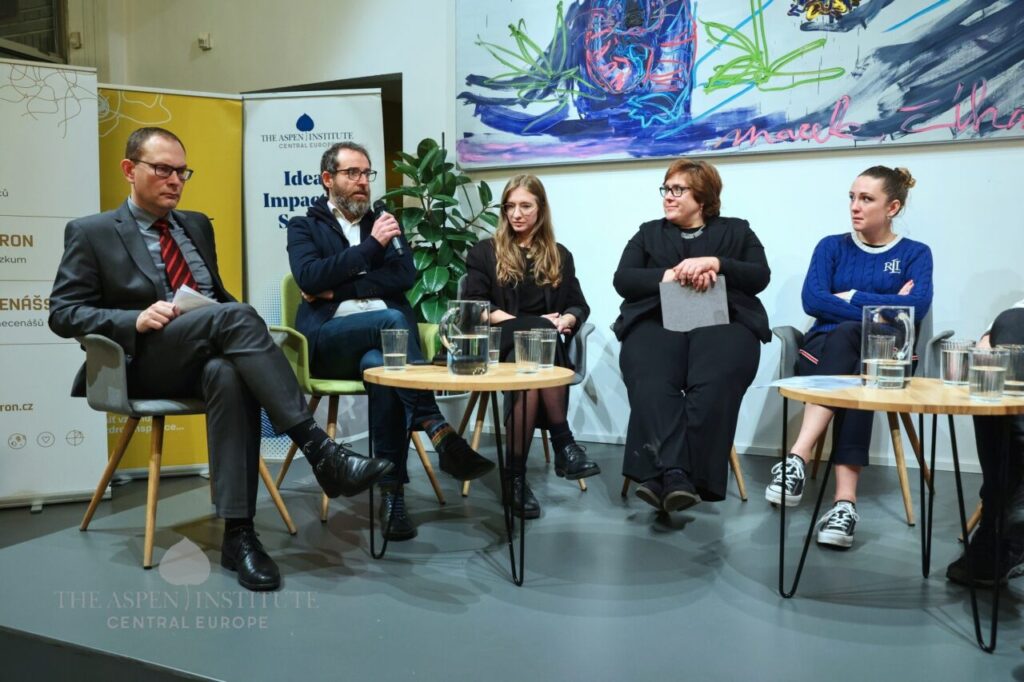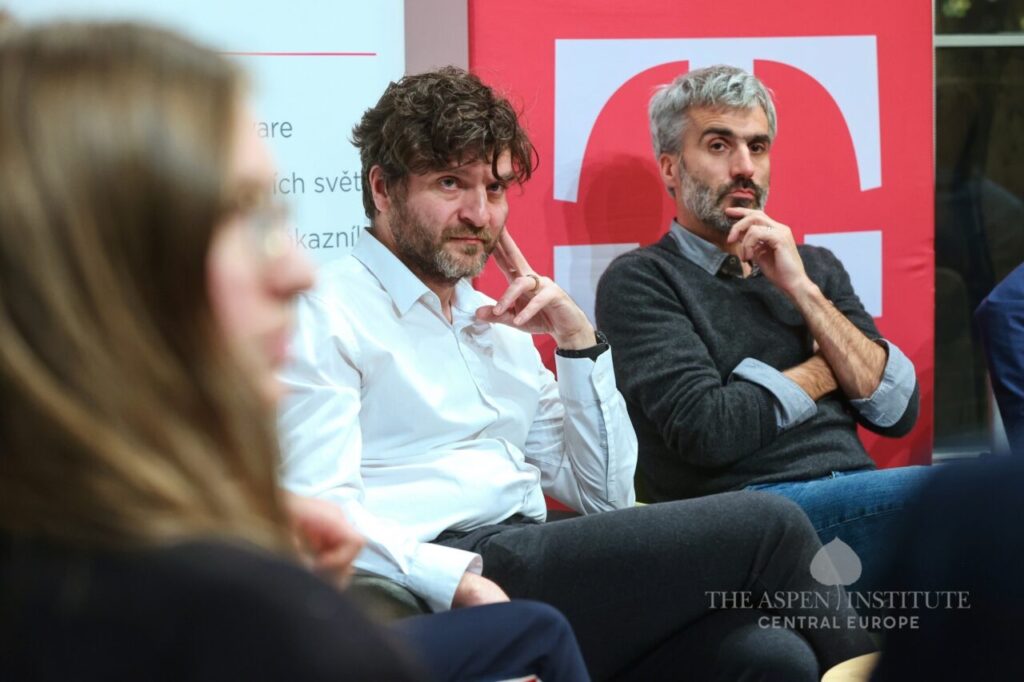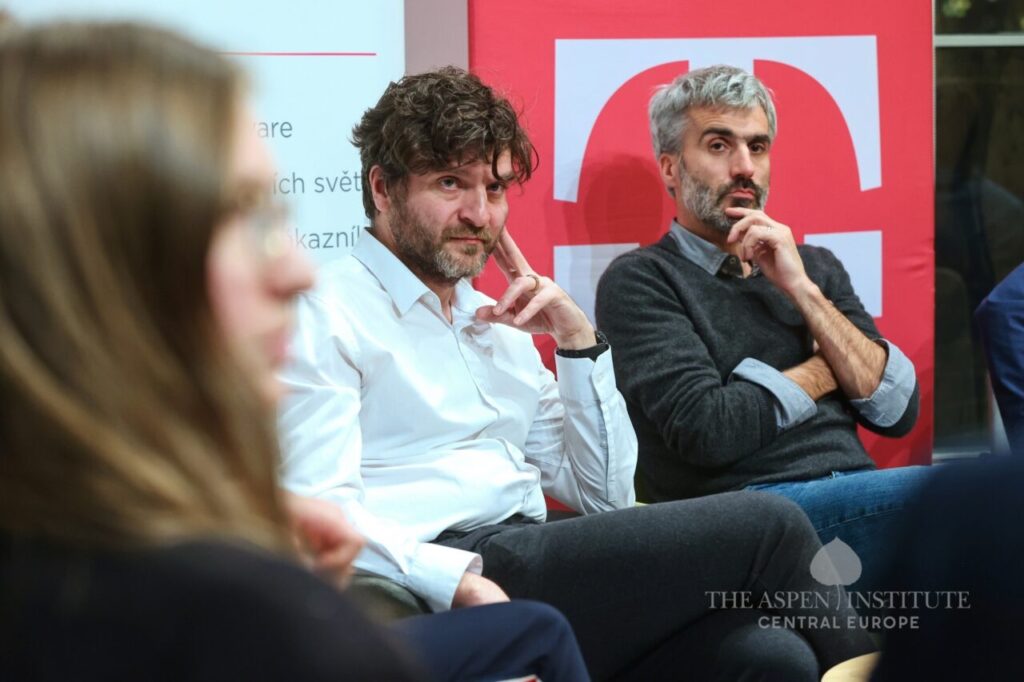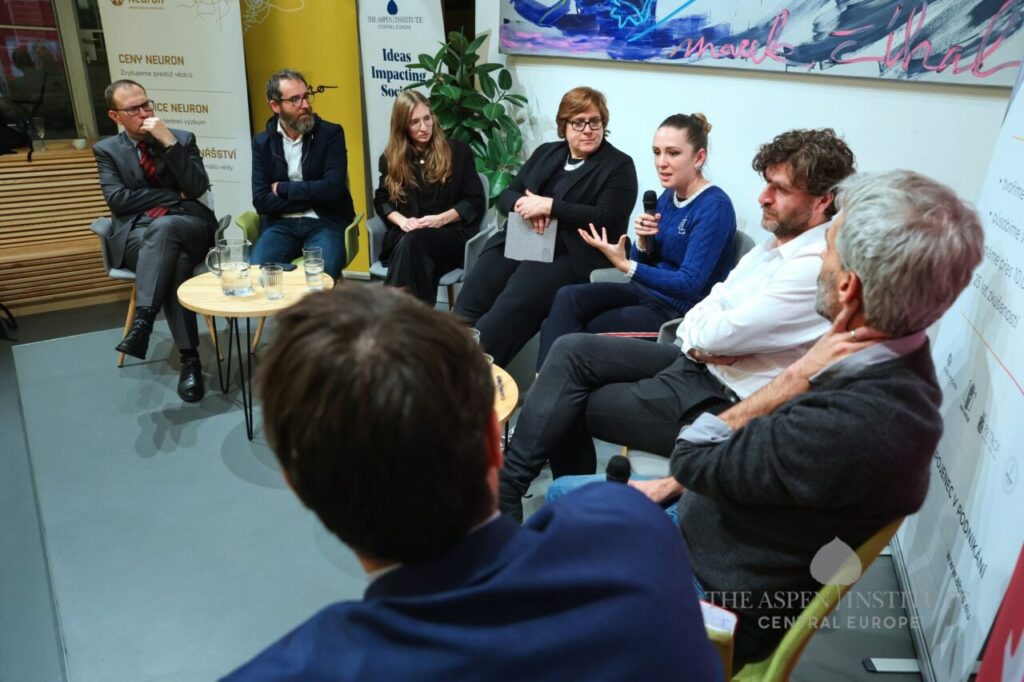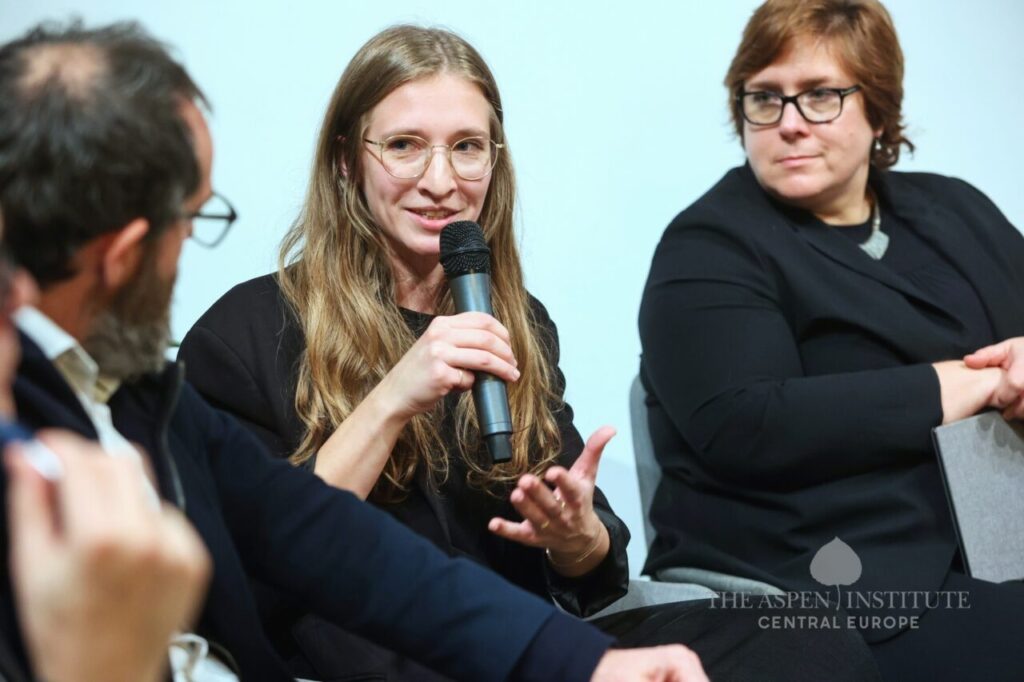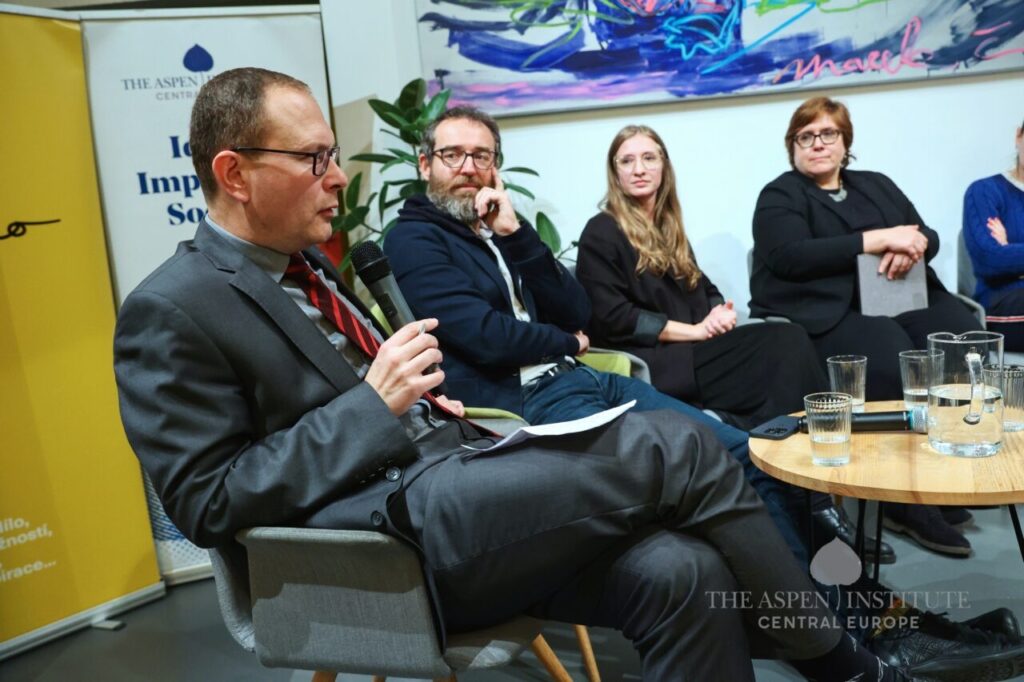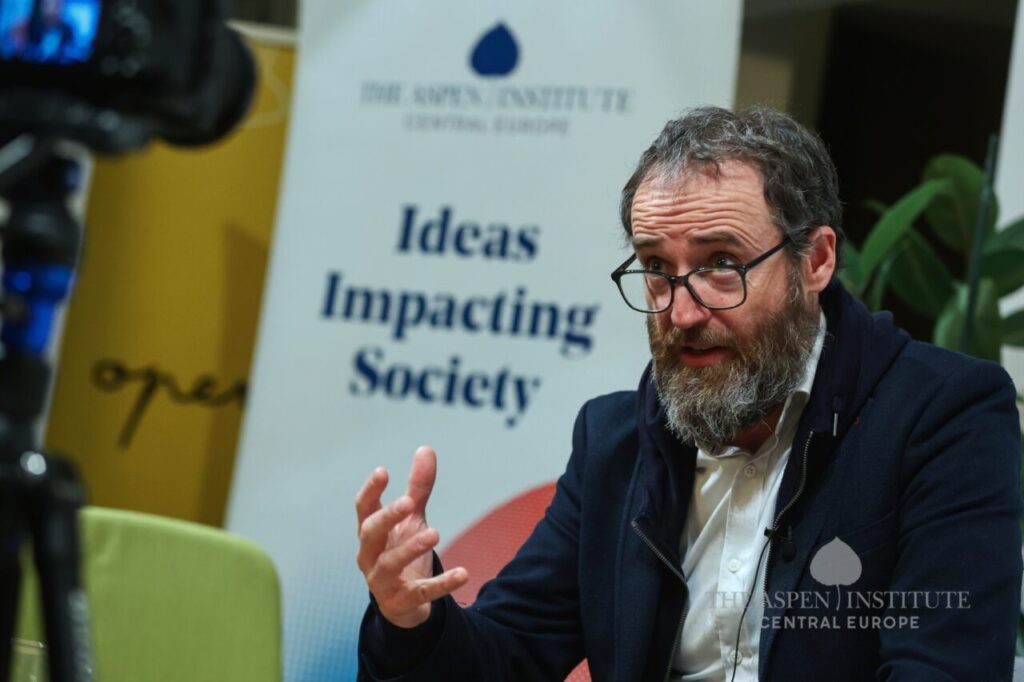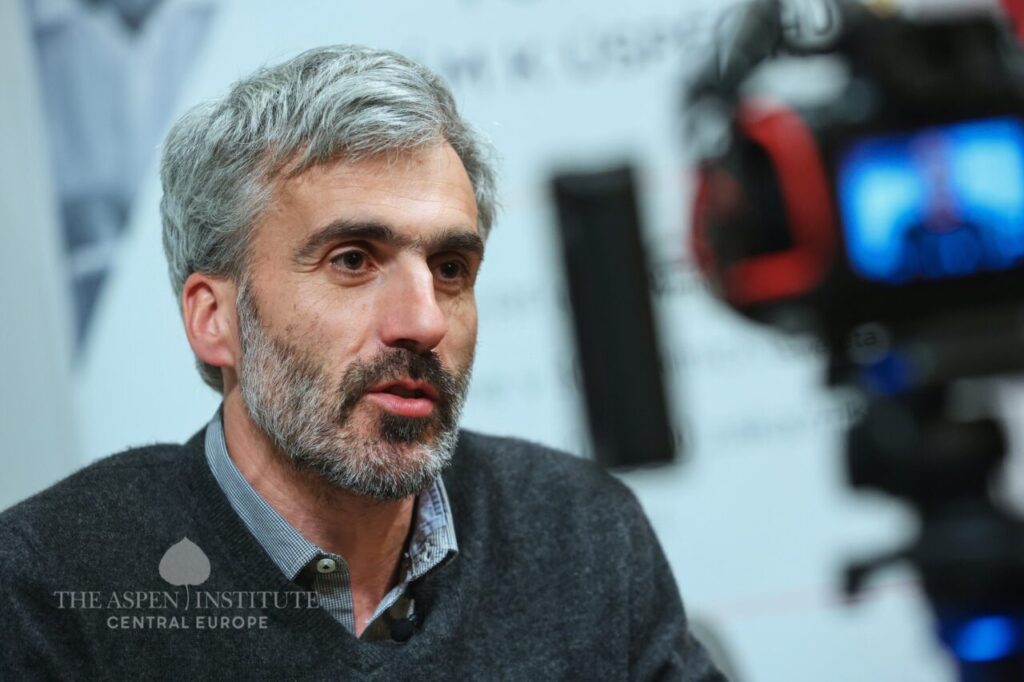Society 4.0 deals with crucial issues of modern times; this time we focused on democracy and its basic principles. On the eve of the celebration of the Day of Struggle for Freedom and Democracy, we could not have chosen a more appropriate time for an open discussion on the basic principles of democracy. The debate aimed to identify the main sources and phenomena of the current crisis of democracy and provide a space for reflection on small and larger options for dealing with the situation, including modern technology, which influences many parts of our lives, including public life. All the participants in the debate agreed that democracy is not a given and that we must take care of it responsibly.
Watch the recording of the debate:
The entire debate was opened by Jakub Rákosník, a historian from the Institute of Economic and Social History at the Faculty of Arts, Charles University, who in his opening remarks offered a historical perspective on democracy. He mentioned how every generation has always gone through and will continue to go through unprecedented changes. The actual challenges of the time in each epoch have seemed more complex to individual nations than they might have seemed. “When we look to the past, this belief holds for any generation. The problems that we are dealing with today, and that we think of as brand new, are often very similar to those that people have dealt with in the past. And in this way, we may as well go back to the beginning of our era.“
The following keynote address was given by Sara Polak, an anthropologist, and AI archaeologist, who gave us an overview of ancient history and how history relates to her research group, in which she is using AI to analyze the position of the common man in Plato’s Polis. Sara Polak also pointed out the correct way to ask a question. “Democracy is not a question. Rather, I would ask – Quo Vadis Homo Sapiens?” She consequently reflected with the audience on how our society will function.
Robert Basch, OSF Foundation Board Member, and Corporate Social Responsibility Manager Livesport sees indifference as the most threatening fact for sustaining democracy. We take many things for granted; unfortunately, many people do not want to take responsibility. “There are big disruptive tectonic changes that even the state cannot cope with, especially when the state does not have a clear vision and only operates in four-year periods. You can hardly change anything over such a short period.“
Petra Guasti, a specialist in the theory of democracy, FSV UK and the Institute of Sociology of the CAS, confided that she worries about democracy daily. In her opinion, democracy is threatened by the influences of technocracy, populism and other factors. “Support for democracy in Ukraine has increased by 30% since the beginning of the conflict.” This is despite all the factors that suggested it would fall. “Democracy and the fact that we will be economically prosperous is not a given.“
Jan Kysela, a constitutional lawyer at the Faculty of Law, Charles University, reminded us that “We need democrats for democracy.” Jan Kysela pointed to the not-very-optimistic trend of young people who associate particular institutions with particular faces that do not always represent the institution correctly. To strengthen trust in institutions, it is important to offer concrete solutions in addition to big words and gestures to ensure a better quality of life.
Michal Pěchouček, co-founder and director of the Centre for Artificial Intelligence and CTO of Gen, mentioned the important role that the time horizon plays in various political and environmental issues. He also stressed that “Information today is personified like never before. People today also choose carefully what they believe.“
Bára Stárková, the chairwoman of the Díky, že můžem (Thanks That We Can) association, found out after her return from abroad that there are similar problems everywhere in the world as we are dealing with here in the Czech Republic. And above all, nothing can be solved by going abroad. On the contrary, thanks to this experience, she found out that democracy can be improved and built in small steps.
The whole evening was hosted by Michael Rozsypal, DVTV.
The public debate was organized in cooperation with Opero and the Neuron Foundation. We would also like to thank ABRA Software and T-Mobile for their support.

